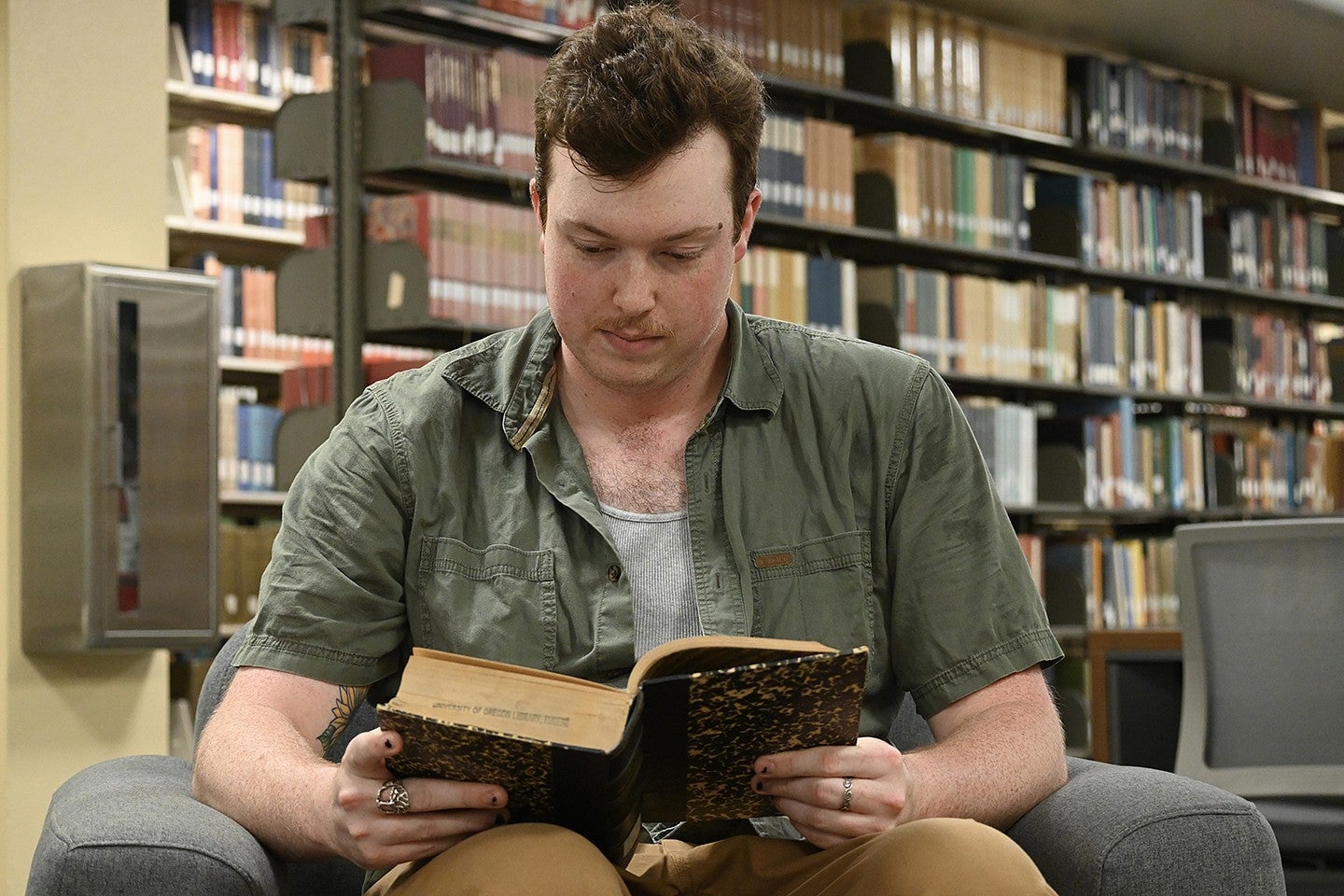
‘Earning this degree, in a very literal sense’
As Dominic Adams prepared to graduate high school, he wasn’t sure of what he wanted to do next. He liked a lot of things—working on cars, leading the debate club, playing in the orchestra and band.
But one day, while walking the halls of South Medford High School, it finally caught his eye. Something he really liked: free pizza. “These religious clubs had pizza at lunch,” Adams recalls.
He wasn’t religious himself but discovered “if you kind of timed it out right, you could probably get pizza for every lunch.”
What started out as a way to get free food turned into something more. He listened as youth pastors and students talked about their experiences with Christianity. “I found myself thinking: ‘These people really believe this, and I want to know why.’”
Adams is a non-traditional student, graduating in five years with a degree in religious studies and minors in philosophy and disability studies. He’s had to work to support himself through all five years of college, but he knows the value of education — he wants to make a good life for himself.
“I’ve always been interested in learning about people and how they live,” Adams says. “I think adding disability studies into the mix of my majors and minors will help round out my education.”
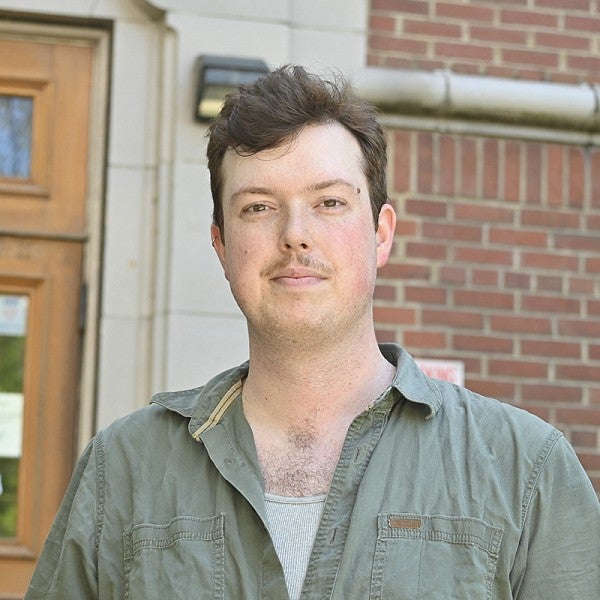
Dominic Adams
Describe your experience at the CHC: It allowed me to take classes in a wide range of topics and exposed me to new areas of academic interest like my disability studies minor.
One decision that made all the difference: COVID-19 had a massive impact on my time at UO and I can’t say my life would be anywhere near the same as it is today without the pandemic, for better or worse.
Advice on the thesis project: Start early and work slowly.
Advice to incoming first-year students: You will regret registering for an 8 a.m. class when you have to actually attend it.
This summer, I can’t wait for: Floating down the Willamette River. And hanging out in parks once allergy season is over.
What I’ll miss most about CHC: The access I had to the CHC advisors. They are amazing advocates and have always helped me feel better about my complex path through college.
I’m grateful for: The very long list of people without whom I never would have graduated.
Where I’m headed next: I’m taking a gap year and then if all goes well, I hope to attend UO School of Law the following year.
He spent his childhood in Southern Oregon where he was raised by his mother for the majority of his life. Growing up, he loved cars — fixing them up to make them drive fast and loud was how he spent most of his afternoons. “I still do,” Adams jokes. “But in a much more reserved way, in a cooler way.”
He entered college as a political science major, but a course he took freshman year — Introduction to the Bible — nudged him toward studying religion. After his first term, Adams officially became a religious studies major and later added disability studies and philosophy as minors.
Resilience amid hardship
When the COVID-19 pandemic hit during his freshman year, Adams wasn’t sure what college would look like. But, with his Zoom camera turned off, he thrived. Free from some social pressures and anxieties, Adams reveled in the accessibility of learning from home.
Then, as the world seemed to go back to normal, Adams felt the weight of his mental health crash down around him. Financial strains and academic challenges made things heavier. He was burnt out, constantly sick, and working multiple jobs just to make ends meet.
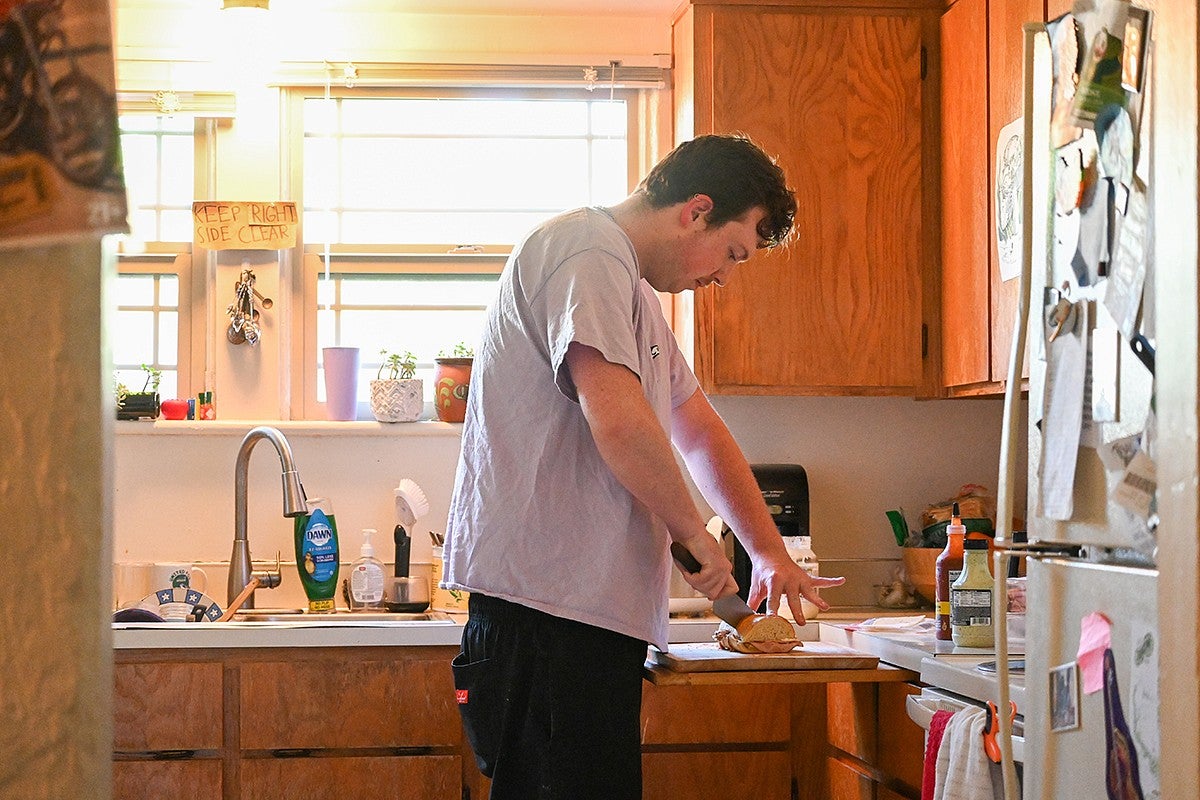
He was a line cook at multiple restaurants. “There were weeks where I had an obligation every single day,” he says. “It would get to the point where I was so overwhelmed I couldn’t get out of bed.”
In Spring 2023, Adams withdrew from his classes for the term he was originally slated to graduate. “I just couldn’t do it at that time,” he says.
Finishing strong
When Adams re-enrolled in classes the following fall, his scholarship had reached its four-year limit, leaving him to come up with the funds himself. Through picking up extra shifts, driving for delivery services, and chasing financial help from the university, he was able to finish his philosophy minor and honors requirements.
Owen Akiyama, Adams’ roommate, has seen his drive firsthand. They have known each other for more than 10 years and were in the seventh-grade band, where they both played bass.
“You know, college is hard enough,” Akiyama says. “But Dom still seems to get through it somehow. He always keeps a positive outlook on things. I just think he’s got a lot of endurance.”

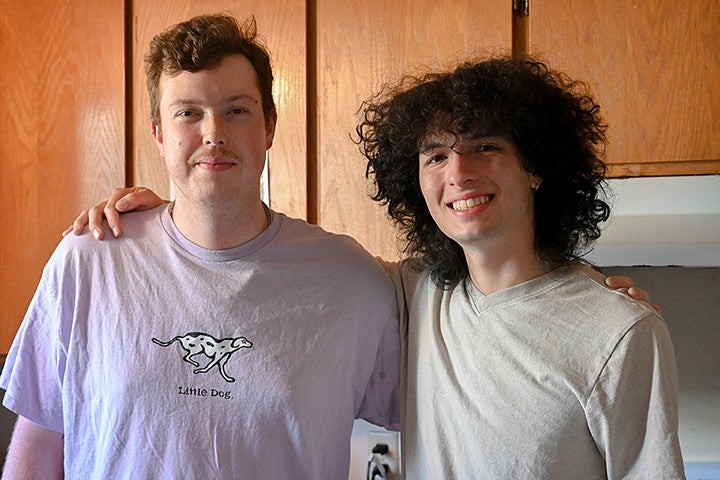
His academic advisor, CHC Dean Carol Stabile, watched Adams dedicate himself to his education throughout his time in the Honors College. She was one of his main champions when he decided to finish his degree in a fifth year, helping him find the resources to fund his education.
“Dominic has worked so hard to complete his degree,” Stabile said. “He is earning this degree, in a very literal sense.”
His CHC thesis project, which he plans to defend in the summer, will analyze the relationship between queer theory and disability studies. Adams has been inspired by the works of Judith Butler, a philosopher and gender studies scholar, and hopes to bring a more intersectional lenses to some of her theories.
Once Adams graduates, he’s planning on going to law school after taking a gap year. “I’ve pretty much only done school my whole life,” Adams says. Though he realizes it could make his path to becoming a lawyer longer, he’s excited to take a break from education.
He wants to become a criminal defense attorney. His mom worked as a legal assistant at the district attorney’s office for 33 years in Medford. “I’d like to make that same kind of impact,” he says.
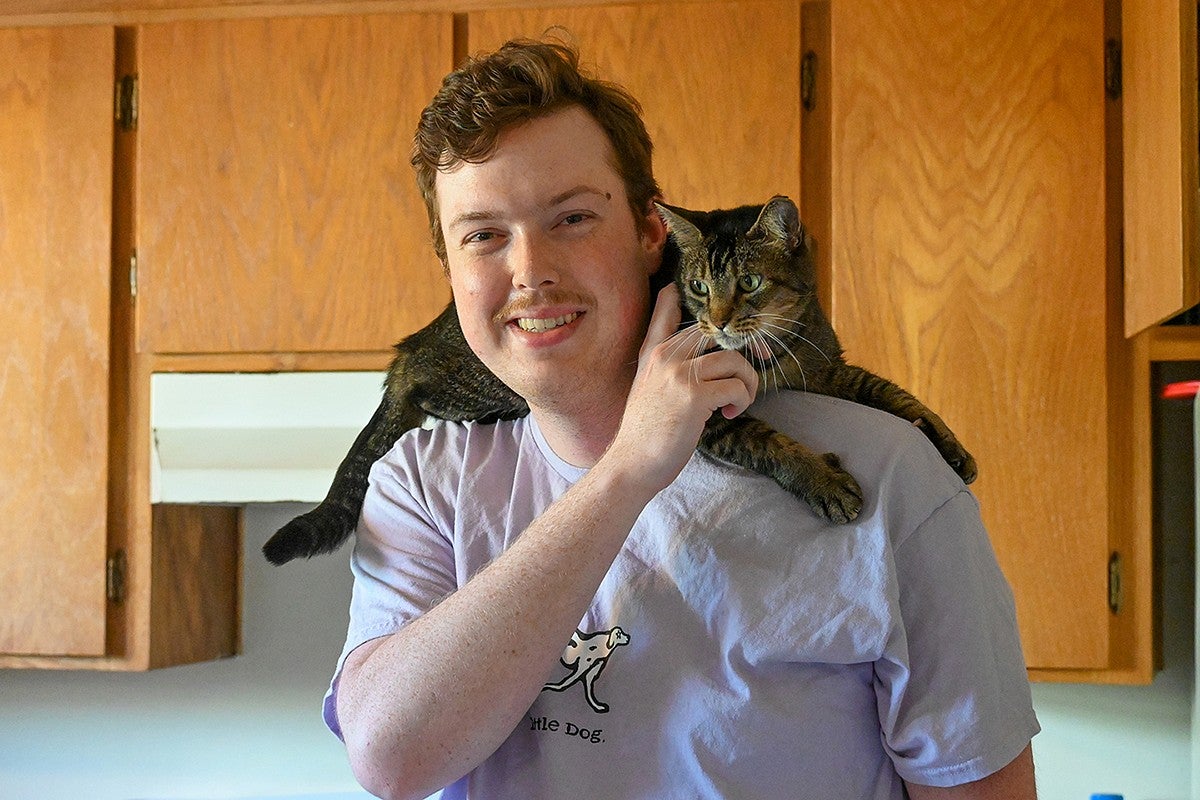
Whenever he gets tired, Adams reminds himself of why he is doing all this academic work: to build a comfortable life. “I’ve worked really hard and barely scraped by for a while,” he says. “The thing that keeps me going is the knowledge that I can put myself in a position to work on something I love and make a living wage doing it.”
Akiyama has no doubt Adams will make a great lawyer; he’s only seen his passion and strong values grow since they participated in their high school debate club.
“I think that his moral compass is the values he defends really, really well,” Akiyama says. “I think that's the kind of lawyer he will be. He’ll stand up for those values.”

